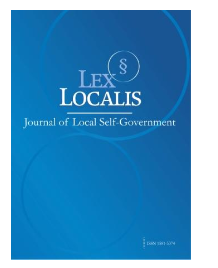STATES OF UNFREEDOM: IDENTITY AND BIOPOLITICS IN J.M. COETZEE’S FICTION
DOI:
https://doi.org/10.52152/801857Ključne besede:
J.M. Coetzee, Identity, Biopolitics, Freedom, Power Dynamics, Postcolonialism, Unfreedom, ResistancePovzetek
This article examines the intricate intersections of identity, biopolitics, and freedom in the select works of J.M. Coetzee, focusing primarily on Waiting for the Barbarians, Life & Times of Michael K, and Disgrace. Coetzee’s fiction consistently interrogates the conditions under which individuals are subjected to states of unfreedom, whether through imperial conquest, apartheid structures, or post-apartheid transitions. Drawing on theoretical insights from Michel Foucault’s concept of discipline, Giorgio Agamben’s notion of homo sacer and bare life, and Achille Mbembe’s framework of necropolitics, the study investigates how biopolitical control shapes identity and circumscribes possibilities of resistance. The analysis foregrounds the precariousness of human subjectivity under regimes of surveillance, violence, and systemic inequality. While Coetzee presents characters who resist domination—Michael K’s withdrawal, Lucy’s ambiguous agency, or the Magistrate’s ethical awakening—their freedom remains paradoxical, partial, or contingent. By situating these narratives within both colonial and postcolonial contexts, the article highlights how Coetzee universalizes the struggle for freedom while grounding it in specific histories of power. Ultimately, the study argues that Coetzee’s fiction exposes not only the persistence of unfreedom but also the ethical responsibility of witnessing and narrating lives under oppression. In doing so, his works resonate with contemporary global concerns over surveillance, displacement, and human rights.
Prenosi
Objavljeno
Številka
Rubrika
Licenca
Avtorske pravice (c) 2025 Lex localis - Journal of Local Self-Government

To delo je licencirano pod Creative Commons Priznanje avtorstva-Nekomercialno-Brez predelav 4.0 mednarodno licenco.








